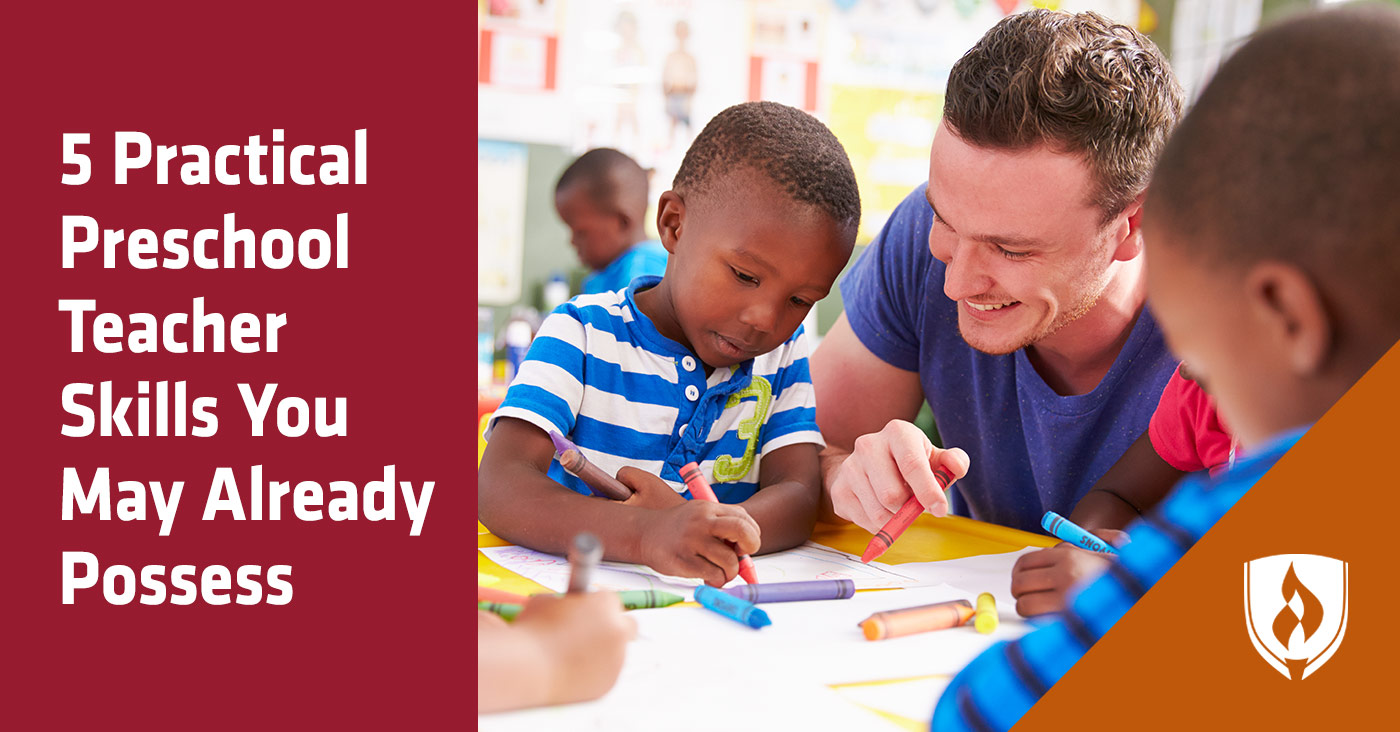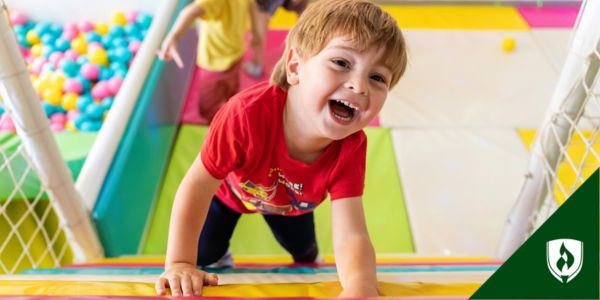
To a preschooler, it seems like almost everything is new, exciting and yet to be discovered. A paintbrush to some is a magic wand to them—and that sense of wonder is certainly fun to be around. If it were up to you, adults could use a little more of what preschoolers have.
Maybe it hasn’t always been on your radar, but working with young children has started to sound more and more appealing. Teaching preschool can be such a rewarding profession that helps children develop a love of learning and gives them a solid foundation from which to grow. But it can also be a challenging job—comparable to herding cats, cats with sticky hands and lots of feelings they haven’t figured out how to express.
If you’ve ever thought about becoming a preschool teacher, you’ve probably wondered if you’ve got what it takes to keep up with the world’s most excitable age group. Lucky for you, we’ve compiled a list of the most important qualities of a preschool teacher—many of which you might already have.
The transferable skills and qualities of a natural preschool teacher
Working with young children isn’t always easy—but you don't have to be a fictional teaching great to have success. There are several natural traits and broadly transferable skills that lend themselves well to this role. Here are 5 key abilities you may already possess.
1. Balance
You know when to indulge in the name brand and when to bargain shop. You know how to prioritize. The dishes aren’t done, but an extra 15 minutes to unwind is more important tonight. You roll with the punches. When bad weather ruins your plans, you turn an unexpected obstacle into a productive day at home. Just because something isn’t perfect doesn’t mean it’s a lost cause.
How it applies to preschool:
If you’re expecting everything to go as planned in preschool, you might want to spend a little more time with toddlers. Things rarely go as planned. But, if you can ride the waves, it’s all part of the fun. Find a balance between structure and spontaneity. Sometimes you will need to give in to the class’s enthusiasm for more games about a topic. Other times you will reel them back in to finish story time. It's about knowing what's most important—whether it's planned or not.
2. Creativity
You don’t have to be an artist to be a preschool teacher—but it doesn’t hurt. There are a million different ways to define creativity. You like solving problems. You like inventing new ways to do the same thing. You connect the dots between two seemingly unrelated topics. Whether its art projects or ideas, you like to create and inspire others.
How it applies to preschool:
When it comes to being creative in the classroom, you’ll find there is more than one way to express your creativity. Creative teaching is all about using the resources you have to create an engaging learning experience. Teaching creativity, on the other hand, is about helping your class think outside of the box and express themselves through creation.
3. Communication
To you, communication is so much more than words. It's being able to pick up on people's emotions before they say something. It's active listening. It's telling someone you care about them with a simple gesture. You learn other people's quirks before you rush to judgment. You take the time to understand how they communicate because you know that communication is not one size fits all.
How it applies to preschool:
One of the reasons that adults often get frustrated with children is because they don’t communicate the way we do. And that’s okay. At this age, kids don’t have words for everything they feel. Sometimes what could be communicated simply as “Look over here” is expressed in a scream. As a preschool teacher, you have to discover what’s going on beneath in order to help kids find better ways to communicate.
4. Energetic
Whether your family likes it or not, you are a morning person. But it’s not just about having energy. You are excited and engaged. Others may yawn at a rainbow over their daily commute, but you’d never pass up a chance to marvel. You’ve been known to clean your entire house in the time it takes others to get back from the grocery store. You’re positive and believe the only direction is forward.
How it applies to preschool:
It’s no surprise that kids are high energy, but a lot of people take for granted just how perceptive they can be. If you’re checked out, they’ll know. It’s important to be engaged in what they’re doing—even if you’ve already made a million construction-paper flowers before. Kids discover new things all the time and want you to be as excited as they are. This can take a lot of energy, but if you’re the kind of person who can turn even traffic into a game, you won’t have a problem.
5. Collaboration
You’re not above getting on someone else’s level. You don’t have to be the center of attention. But if putting on a tutu and dancing like a monkey is what it takes to cheer a kid up, you’ll do it. You’ll tap into your inner child rather than hold on to your adult perspective. You’re not just in it for yourself. You know that kids have as much to offer you as you have to offer them.
How it applies to preschool:
Of all the people you collaborate with as a teacher, your students are most important. After all, they’re not just passive recipients of an education. Learning is about participating. If you’ve ever had a teacher hand out lessons like final verdicts, you know how hard it is to pay attention when you feel left out. As a preschool teacher, your job is not just to show preschoolers how things work but help them discover it for themselves.
Technical skills to refine before leading the classroom
Along with engaging and guiding your students, you will contribute to other behind-the-scenes work such as communicating with parents and early childhood intervention. In order to understand what’s typical and what might need more attention, you will need to learn more about the psychology of little ones. By pursuing an Early Childhood Education degree, you can round out your skillset and be prepared to put your best foot forward.
So what are some of the specialized skills you’ll need to work as a preschool teacher? We analyzed 126,164 preschool teacher job postings in the last year to give you a better idea of what employers are seeking.1
- Early childhood education
- Child development
- Lesson planning
- Special education
- Record keeping
- Leadership development
- Language and literacy development
Learn the ABCs of early childhood education
It's hard to deny the power of preschool. With a myriad of studies attesting to its value, preschool teachers are in a unique position to have a lasting, positive effect on children. You can help them establish important skills and build key relationships. You can create the safe space they need to explore and grow.
If that’s something you’re passionate about, check out our article, “How to Become a Preschool Teacher: Your 4-Step Lesson Plan.”
Related Articles:
- Anti-Bullying Lesson Plans: 6 Ideas for Early Childhood Educators
- What is a Child Life Specialist? Helping Kids Cope with Medical Crisis
1Burning-Glass.com (analysis of 126,164 preschool teacher job postings, Nov. 01, 2018 - Oct. 31, 2019).




